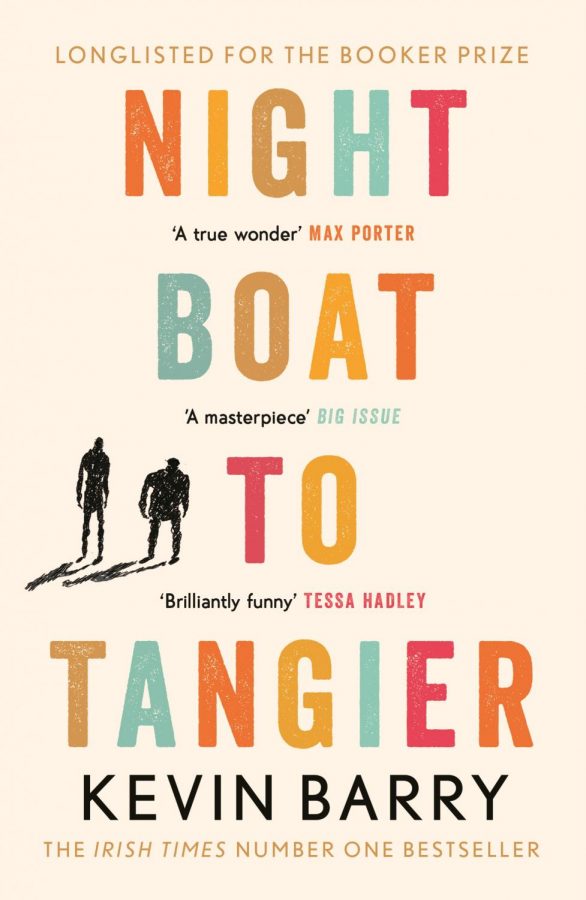‘Night Boat to Tangier’ Review
Kevin Barry follows the lives of long-time friends in a Spanish port town
Based in a grimy port in Algeciras, Spain, author Kevin Barry promptly sets the cheerless, twisted tone of “Night Boat in Tangier.” Jaded from their dark criminal past and unstable love lives, life-long friends Maurice Hearne and Charlie Redmond struggle to find a moral high ground.
Sitting on the dirty benches overlooking the harbor, the two Irish men lament over their stages of life and (poor) decision making.
The point of view quickly switches from past to present as the narrative shifts from the mid 1990s to 2018. Both characters are violent, but Charlie is more optimistic about life. Maurice on the other hand is a raging pessimist, The opening pages of the book highlight both Hearne’s and Redmond’s feelings toward each other as their discussions act as a “shield against feeling.”
It is clear in the setting that the dock is a sketchy area that “reeks of tired bodies and dread.” Although the men have experienced a traumatic past, neither seem to acknowledge it and they bury their feelings.
Evidently, the musty dock is not a nice place to conviene, but it effectively prepares the reader for the somber and demoralized novel ahead.
The two men await the arrival of Maurice’s estranged daughter, Dill (or Dilly). She is described as a Rastafarian, last seen with thick dreadlocks and without a care in the world.
It is rumored she will arrive in a boat from the neighboring island: Tangier. Uneasy and remorseful, Maurice searches for the point where exactly his life went wrong.
Although he comes across as tough, we find that Maurice is cowardly and runs away from responsibility and the messes he creates.
His emotions masked by drugs and rage, we witness him unable to effectively communicate love and watch his emotions frustrations turn to anger as he ruins a life he could’ve had. Neither character can seem to run from the past because the past will not relent.
Flashing back to their younger, reckless selves Barry creates two dynamic characters with a rich, complicated, and chilling history. At first, (within the first 100 pages), I found the novel to be uneventful and with an irrelevant message.
However, upon further reading I grew to admire the book and its almost dejected message. Through the shifting story lines and point of views, Barry communicated the feelings of regret as he described the men and Dilly who still sought to find themselves among the chaos and distractions in their life.
He explains the cycle of these bad decisions as Dilly was practically abandoned and “raised by wolves” and she similarly abandons her father at the docks, unforgiving for his actions.
Through the characters, Barry weaves in ideas of self-harm for escape and addiction to relate with the traumatic events one may experience throughout life.
The cynicism for life that Maurice carries counteracts the expectation for life as he recognizes life doesn’t take you down one path. Barry’s remarkable ability to describe the setting and emotions ultimately lead to a chilling novel that left me reflective.



































